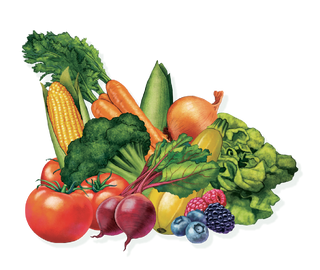The Good and Bad of Food for the Birds
"I live in Buffalo, where we help the birds survive by providing food, water and shelter and will continue to do so. Last year eight blue birds arrived in the middle of a snowstorm. Luckily, we had meal worms to feed to the birds until the weather warmed. I don't believe that they would have survived otherwise. McGrath need not make uneducated statements of which he knows not. Goodbye and good luck."
A. Don't hold back oh name withheld Master Gardener; how do you REALLY feel?
Anyway, I'd like to add that yours is the first such email we've received in close to five years. All the other listeners and watchers seem to realize that our show is a blend of organic gardening advice and (attempted) humor, which should be evident from the one-minute 'billboard' that begins every TV, radio show and Podcast.
(When I was first starting out on NPR the show was live, and as a result, much wackier than what I consider to be the tamer shows of today. Back then, my executive producer would come into the studio after every show and say, "Mike; you have to give up this comedy thing; It's a GARDENING show!" My reply? "If this was just a 'gardening show' it would close on Saturday night!)"
Now, on to birds. Specifically, the bluebirds our MG mentions. Members of the thrush family, my research shows that some Eastern bluebirds migrate South, while some overwinter in their breeding grounds, but don't like freezing temperatures. Because our MG is in a FRIGID area of the country, it is likely that those rescued bluebirds flew back North too early. And I expect that our MG did a good amount of research on them, because Cornell and other reliable sources specify mealworms as their top human-provided food. So, you did good, oh nameless one; and I learned something from researching it.
But that leans into my correct stance on this issue. I have long supported and heartily encourage feeding birds high protein, high fat foods in the winter in areas that get really cold. That's why I advocate hanging suet feeders near your garden when temps drop; but mealworms are also an excellent winter food for birds that eat insects most of the time.
However, I also recommend taking down those suet feeders in the Spring so chickadees, woodpeckers, bluebirds, etc. will move on to eating overwintering garden pests. No seed feeders; they spread disease by the unnatural crowded congregations they cause (the last two seasons have seen extremely problematic and rather nasty diseases traced back to feeders).
There is also the very real issue of training baby birds to rely on human feeding instead of learning to find food in the wild, which those birds have been doing for untold thousands of years without human intervention. (The Humane Society has been campaigning for years to at least stop feeding during the nesting/baby bird season for this very reason.)
Feeding birds seed in the Spring, Summer and Fall is one hundred percent for human amusement. I personally stopped feeding seed in the summer some thirty years ago and my place is LOUSY with birds. Every morning and evening sounds like four Symphony Orchestras flung together. You (all of youse) can do what you want, but please think about the consequences and please take down your feeders if you see sick birds.
But again, I agree with our Master Gardener about water. Natural food may be abundant in the summer, but natural water sources typically dry up for extended periods. So, place as many birdbaths as possible in the center of your garden; the birds will pass over your plants and dine on tomato hornworms on the way in and out. And if you can swing it, heated birdbaths in the winter are a GREAT idea in colder regions. Please be sure to empty, clean and refresh the water as often as possible, both to get rid of bird poop and to prevent mosquito breeding in the warmer months.
It now occurs to me that our Master Gardener and I are of the same mind. Her use of mealworms for the bluebirds was snap on, and her mention of water and shelter are also in line with my philosophy. (PS: If you have a cut Christmas tree, stand it up in your backyard and hang suet feeders from it for winter food and shelter.)
The only issues I see are our MG mishearing that show and her opinion of my humor. All of you, please check your source material before you start typing. And as to the alleged humor, I do NOT want this show to close on Saturday night!

